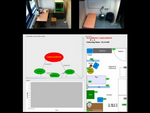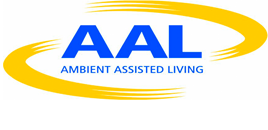CCE
(2009-2012) The aim of the project is to support the development of a common, open, standardised and integrated European platform to deliver connected ICT-based assistive living solutions for the elderly, building on initiatives at the national level and, taking account of different funding mechanisms in EU member states (Social insurance-based; Germany and Hungary, private insurance-based; Netherlands and taxation-based; UK), to develop and assess business models to support the mainstream provision of asistive solutions. The focus will be on dementia sufferers, but the platform will offer the potential to be extended to other chronic conditions.
The project will balance technical, business and user-related issues and will achieve its strategic objective by:
- Identifying user requirements for sufferers of dementia, their carers and healthcare professionals in different member states (drawing on national groups) to ensure that the development of mainstream assistive technologies for elderly people is orientated towards the needs and lifestyles of users, and to gain an awareness of barriers to use.
- Establishing performance requirements for interoperable technology solutions for assistive living provision to the elderly in the EU.
- Developing selected ICT-based hardware and software solutions to support persons suffering from dementia. A health hub to integrate such assistive living solutions for both in-home and roaming use will also be developed. These solutions will provide a basis for piloting, assessment of barriers and assessments of market and business issues carried out later in the project.
- Subject to acceptable approach to ethical issues, carrying out pilot studies to demonstrate and assess the application of ICT-enabled assistive technologies in real situations. The results will be used to identify barriers and develop guidance.
- Assessing non-technical barriers to the mainstreaming of assistive technologies for the management of chronic conditions of elderly people (ethical, political, socio-economic, legal) in different member states.
- Business models taking account of needs and funding models in different member states will be assessed.
- Disseminating the project results widely.
- AAL Joint Programme, Call-1
- Building Research Establishment (UK, consortium leader), NXP Semiconductors (NL), Hereward College (UK), Centrihealth (UK), Peverell (UK), Fraunhofer-Gesellschaft Institute (DE), Trendbuero (DE), Medcom Company (DE), Budapest University of Technology and Economics Biomedical Engineering Knowledge Centre (HU), Innomed Ltd. (HU), MOHE – Hungarian Association for Home Care and Hospice (HU), Continua Health Alliance (global, unfunded)
Further pages
Project meeting, Budapest, 13 July, 2011 - 15 July, 2011
CCE project – Activity Tracking System, demo video:



